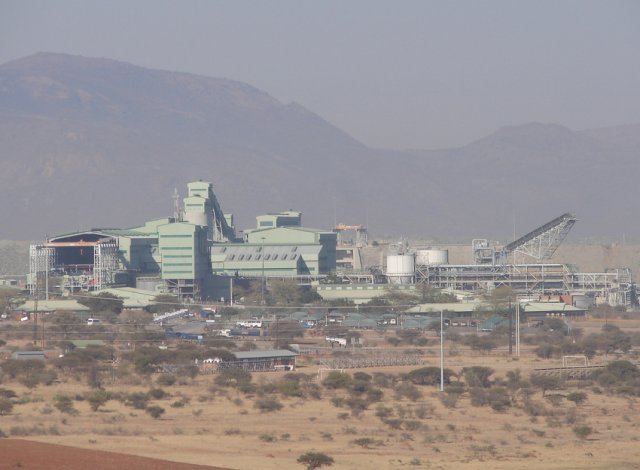
On June 19, six executives — the entire board of Australian mining corporation Sundance Resources — were killed in a plane crash in the Republic of the Congo. Australian politicians and the corporate media emphasised the tragedy of their untimely deaths, showering praise on the deceased.
At the July 7 funeral of four of the executives in Perth, WA Premier Colin Barnett said: “Their enterprise, skill, daring and enthusiasm led them as pioneers to the frontier of developing resources in a difficult land … It takes men and women of courage and enterprise, skill and determination to develop those resources.”
Queensland Premier Anna Bligh said of Sundance director Ken Talbot on June 23: “He's created a lot of opportunities.” At the time of his death, Talbot had a personal fortune of $965 million and 35 corruption charges facing him in Queensland.
The Sundance directors created opportunities for themselves by “developing” African resources. But for the people in whose countries these resources exist — such as the “iron ore province” of West Africa, a vast area encompassing Gabon, Cameroon and the Congo — the mining companies create environmental destruction, economic exploitation and political repression.
Australian companies are in the forefront of a new “scramble for Africa”, reminiscent of that which took place in the late 19th century when the European empires carved up the continent. However, the 21st century scramble is in a post-colonial and nominally independent Africa, so the multinationals work with corrupt and authoritarian local elites.
The old European imperialists are still represented in this new scramble, along with the US, Canada, Brazil, China and Australia.
In October 2008, Sundance announced it had struck a deal with the Congolese government to buy the Nabeba iron ore project, bringing Sundance’s total holdings in the Congo and neighbouring Cameroon to 3755km². Striking deals in the Congo means getting involved with one of the most venal regimes in the world, ranking 158 out of 180 in a 2008 corruption study conducted by Transparency International.
Since assuming what is effectively dictatorial power after a brutal 1997 civil war, Denis Sassou Nguesso has enriched himself at the expense of the Congolese people, three quarters of whom, according to the 2009 UN Human Development Report, live on under US$2 a day.
Sassou Nguesso is notorious for the astronomical hotel bills that accompany his visits abroad.
A five-night stay in New York’s Waldorf Astoria for the September 2006 UN General Assembly session left the Republic of the Congo with “a bill of £130,000 — comfortably more than the £106,000 that Britain gave the country in humanitarian aid last year”, the January 7, 2007 Sunday Times reported.
The source of Sassou Nguesso’s wealth and power is no mystery: his role is to keep the population under control, simultaneously allowing the multinationals free rein (in return for generous kickbacks).
Sundance also developed a close relationship with Cameroon’s President Paul Biya — a dictator in all but name, having staged rigged elections to stay in power since 1982.
Like all dictators, Biya does not tolerate dissent. In February 2008, protests gripped Cameroon as dissident groups challenged changes to the constitution and unions called a strike against rising fuel prices and poor working conditions.
They were brutally suppressed. Local NGO Maison des Droits de L'Homme reported more than 100 protesters killed, AFP reported on March 12, 2008.
Biya’s good relationship with foreign oil and minerals corporations (like Sundance) has allowed him to spend like Sassou Nguesso when he travels. On September 3, 2009, the BBC reported that a holiday he was then taking in France was costing $40,000 a day.
One of the chief attractions of West Africa as a source of iron ore and other minerals is the absence of meaningful environmental and labour laws.
That the Congo and Cameroon business model is standard for West Africa and throughout the “developing” world, highlights the fraudulent nature of public relations stunts such as the 2006 Extractive Industry Transparency Initiative (EITI).
The multinationals rake in billions, destroying the natural environment and ruining the livelihood of small farmers in the process.
Glossy brochures produced for potential investors trumpeted Sundance’s world class infrastructure facilities, but this infrastructure is purely to facilitate resource extraction.
Necessary social infrastructure remains neglected, with often tragic results. On June 21, a train crash in the Congo on the poorly maintained Pointe Noire-Brazzaville railway killed 76 people. Unlike the Sundance plane crash two days earlier, this received little attention in the Australian media.
Sundance is one of many foreign firms making their presence felt in the tri-national iron ore province with this vast, if largely unreported, robbery of natural resources.